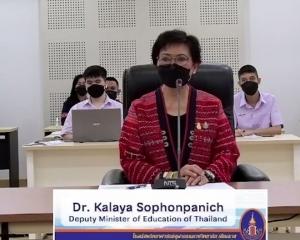Otago Primary Principals' Association president Brent Caldwell said the practice had become necessary because the continual pay blunders were leaving some teachers in financial difficulty.
"Staff have mortgage payments, car payments and school fees to pay, and disruptions to their pay puts these in jeopardy.
"So some schools are subsidising them - paying them out of their own money - so that they can keep up with their payments.
"It's something we've done in the past in exceptional circumstances, but those exceptional circumstances are now becoming the new normal."
The problem was schools were still waiting on the money from Novopay to recoup those costs, and it was beginning to put pressure on school finances, Mr Caldwell said.
Another concern was schools were having to provide their own checks and balances to make sure their staff were correctly paid, he said.
"Novopay should be a completely reliable and trustworthy system for the payment of school staff.
"But schools are having to act as overseers to ensure that their employees are correctly paid."
School administrators were having to make three or four requests to get "really simple" queries dealt with, Mr Caldwell said.
A Dunedin principal recently spent 70 minutes waiting for Novopay to answer the helpline and, after 30 minutes trying to work through his problem over the phone, he was cut off and Novopay did not call back, he said.
"That's unacceptable.
"It's creating an awful lot of work and stress for school administrators, who are the glue in our schools.
"Having them distracted by rework is having an effect on all schools.
"You could multiply this problem by every school across New Zealand," he said.
"The problem multiplies with each pay period."
Ministry of Education chief information officer Leanne Gibson said 87,119 school staff were paid this week, and each successive pay round had seen a reduction in the number of errors.
However, with a payroll of more than 90,000 it was not uncommon to find some errors.
Though every effort was made to minimise them, there were always a certain number of errors that occurred in the previous system, she said.
Under that system, there were, on average, 100 to 125 errors per cycle where staff would not get what they expected in their pay packet.
It was normal practice for schools to make advance payments to a staff member if they were paid less than expected in a pay cycle, she said.
"While Novopay is paying most staff correctly and on time, we are committed to addressing the issues that have arisen during implementation.
"We are making good progress on our improvements to the service and this progress will continue," she said.











